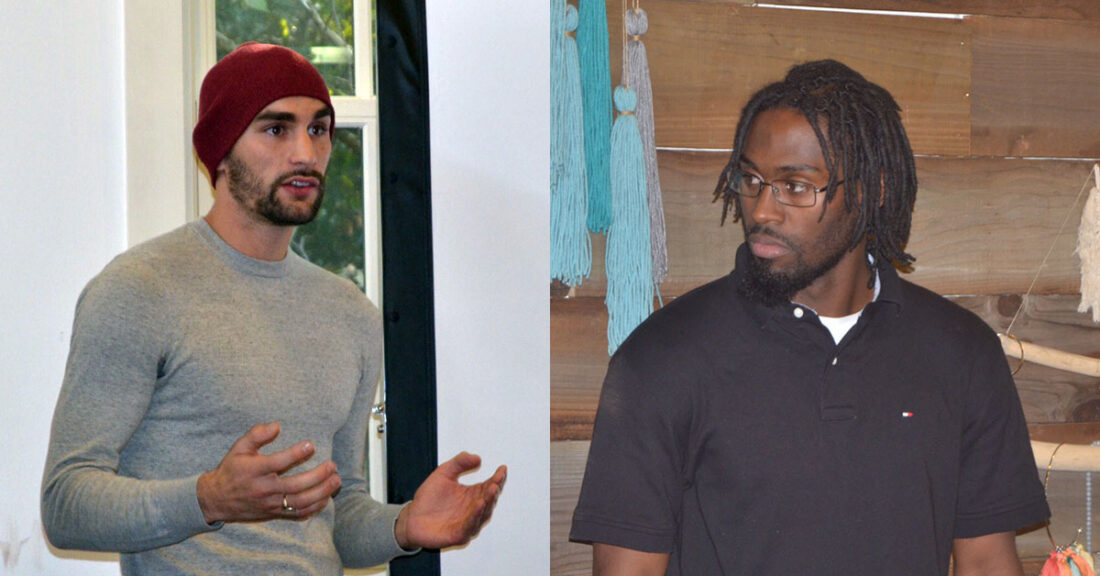Young Adults Speak: Now Free, Two Oregonians See Progress in Sentencing Reform

From left: Noah Schultz and Robert White
Oregon recently joined other states in reconsidering decades-old policies that treat youth as adults ― eliminating mandatory transfer to adult court and shifting discretion back to judges, enabling them to consider each youth as an individual who is capable of tremendous growth and change. The reforms reverse many elements of the state’s Measure 11, a mandatory sentencing law that required youth age 15 or older charged with certain crimes to be waived to adult court, given prison terms and deprived of early release for earned time and good behavior.
The Annie E. Casey Foundation asked two young Oregonians who came of age in the system under Measure 11 to reflect on the lasting negative effects they still face — in their 20s — as a result of their mandatory transfer to adult court as teens. Noah Schultz was charged and sentenced under Measure 11, and Robert White accepted a plea that exempted him from the requirements of the law but left him with an adult sentence of 61 months and an adult felony record. The two men, former members of the Foundation’s Juvenile Justice Youth Advisory Council, also comment on where Oregon is now.
Q: How did the lack of judicial discretion under the original Measure 11 affect you personally?
Schultz: The story of the person was completely disregarded. Even if the judge was compassionate, it didn’t matter. My judge would have recommended 60 months with good time, but I got 90 months.
White: Mandatory minimum sentencing started at 70 months. Seventy months. At that time, that was a quarter of my life being taken from me.
Q: What consequences have you experienced because of your adult felony record?
White: I have housing restrictions, job restrictions. National groups saw me for what I could be, but in Oregon I still had a company say I couldn’t work at any of their stores. Now I have to pay parole fees. They started garnishing my wages. It’s been four years, and I’m still facing different barriers that are coming up. It goes on forever.
Schultz: When I got out, it alarmed me to see how many people who I was really close with in prison, who did every single thing they were supposed to do, but still struggled when it came to housing, employment and other services after they were released.
Q: What is your view of the juvenile justice reform effort in Oregon?
Schultz: A lot of our friends who were given extremely long sentences are still in adult prison. I do think this [reform effort] is progress. But there’s still a long way to go.
White: It’s still a racial divide. I’m still seeing my black and brown brothers being crucified by the system, not being given the benefit of the doubt.
Q: What needs to change in juvenile justice?
White: We need to start looking at the root issues. Instead of investing $100,000 to put a young person behind bars, we can invest $100,000 in after-school programs.
Schultz: What I would really like to see is reinvestment in the communities that really need support. And to keep youth in the community…a complete redesign of the system.
Robert White is a professional mentor at Portland Opportunity Industrialization Center and Rosemary Anderson High School’s Community Healing Initiative. White was a youth partnership consultant with the Foundation and participant at the Coalition for Juvenile Justice’s national youth summit for emerging leaders. Noah Schultz currently supports youth through cultural art programs at Morpheus Youth Project.






